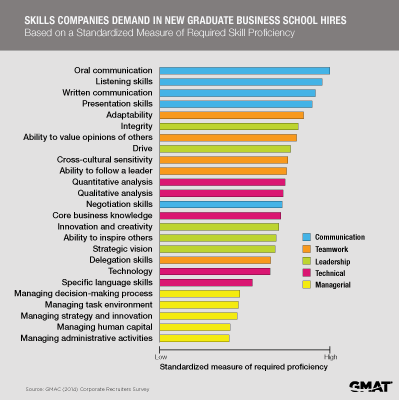
Improving communication skills has been one of the top objectives for any client I’ve worked with, whether it’s coaching an executive or mentoring a young professional.
Yet communication is always referred to as a soft skill. Drives me nuts. That’s why I love this quote from a career counselor.
“Hard skills are the foundation of a successful career. But soft skills are the cement.”
–Dorothy Dalton
Or maybe you’ve heard this: “Your hard skills may get you hired; your lack of soft skills will get you fired.”
Even tech companies are scrambling to hire good communicators, because the tech world has discovered that engineers and scientists are not always the best communicators.
XL Catlin, which provides risk insurance to architects and engineers, has periodically studied the claims that the company has paid out. For their 2004 study, they evaluated more than $1 Billion in claims paid. Twenty percent of the claims were due to technical issues; the rest were due to non-technical issues, with communication leading the pack at 27%.
When the company did the study again in 2013, communication still led the pack, but now with 39% of problems.
Still don’t believe poor communication can hurt you? Or eat into your profits? Check out the two reports below.
This study revealed “the most crucial success factor in project management is effective communications to all stakeholders—a critical core competency to all organizations. . . . organizations cannot afford to overlook this key element of project success and long-term profitability.”
See how companies have seen their profits improve when they invest in communications. Having studied the ROI of communications for over 10 years, Towers Watson reports: “Organizations with effective change and communication are 3.5 times as likely to significantly outperform their peers.” It’s worth your time to check that out, don’t you think?
Communication consistently ranks as one of the top skills employers want and need. What can you do to improve your communication skills? Check out these links.
Think of words as costing you money—maybe $1 a word. Which words do you use that are a waste of your money? This article from Fast Company suggests a word most of us use that, in the end, means next to nothing. “I use it when I don’t want to say something (for fear of retaliation), when I don’t even know how to put my thoughts into words, or when I don’t want to confront how I really feel inside.”
How often have you dashed off a reply to an email or text, then wished you could take it back? “Being a skillful communicator takes thoughtfulness. So much of our communication has become transactional — a word here, a sentence there — that we forget communication, at its essence, is relational.” This article from Harvard Business Review offers some tips to help you think before you write. I always recommend that: Think Before You Write.
Doyle Research Associates suggest these 5 tips “to craft compelling and engaging communications likely to achieve that elusive goal — customer breakthrough.” As one who has spent thousands of hours teaching others to communicate, I think these are worth your time.
Ask Good Questions to Save Time and Money
How to Improve Your Writing Skills in 3 Steps
Your Results Should Reward You Come Appraisal Time
Keep learning. Keep growing.
© Pamela A. Scott, MentorLoft.com, 2016